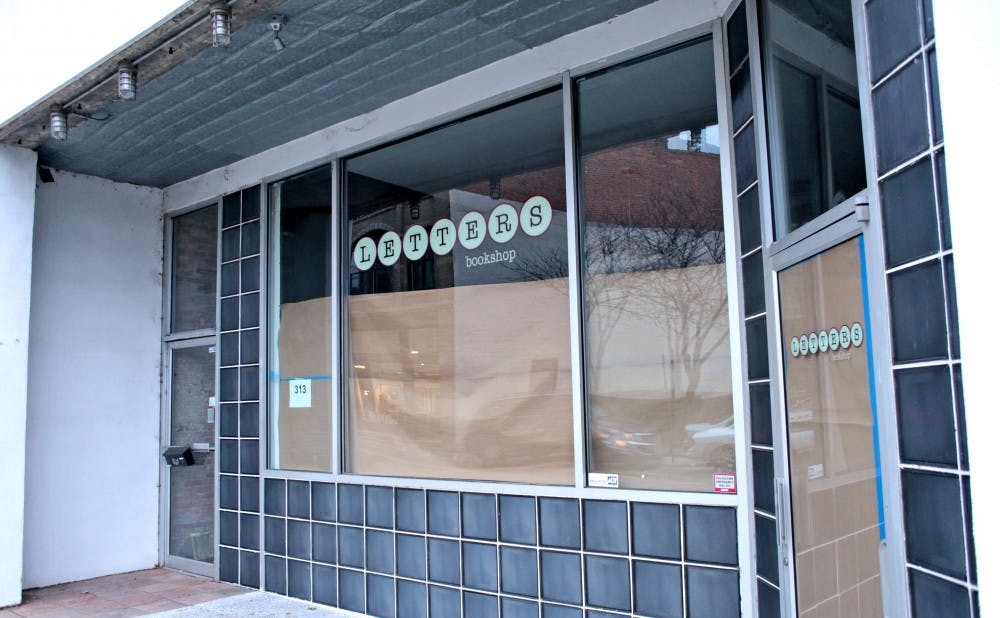A new bookshop opening in downtown Durham signals the resurgence of independent bookstores.
The bookstore—named Letters—will be selling mostly used and rare books and some selections of new books. Its unique demographic is not expected to detract greatly from the business of other small bookstores in the area, and its creation reflects the improving atmosphere for bookstore growth. It will open its 313 West Main Street location either this Friday or next Tuesday. One of the strongest features of the shop will be children’s books, said Land Arnold, founder of Letters.
“Every neighborhood needs to have a bookstore, and while there are already some great ones out there, I am sure that Letters will be able to offer something different,” Arnold said.
Arnold was one of the three founders of Flyleaf Books, a bookshop that opened in Chapel Hill in 2009. He left the business five months ago and decided to start his own shop here in Durham.
“This city is beautiful and there is so much happening, and I want to be part of the revitalization,” Arnold said.
Arnold feels that his previous experience in the book industry will allow him to best meet the needs of his customers, and to advance a unique feature of Letters—its philanthropic involvement.
Letters is in partnership with Book Harvest, a nonprofit that donates children’s books to low-income children in the Triangle area. The proceeds from children’s books at Letters will go to Book Harvest, Arnold said.
He said that despite the popularity of e-books and large retailers like Amazon, he is confident that his new store will attract its own audience.
“E-books have leveled out part of the market in the past, but the shift towards e-books has slowed down tremendously,” Arnold said. “Letters has a beautiful space with a great collection, and I will be here to help the readers find what they want to read.”
Owners of other small bookstores echoed Arnold’s impression.
The sales revenue of the Regulator—an independent bookshop on Ninth Street— has declined compared to five years ago, but has been on the rise since the start of this year, said co-owner Tom Campbell.
The Regulator opened 36 years ago and its consumer base consists of nearby residents of varying demographics, as well as graduate and some undergraduate students from Duke.
“Many of our books are academic, so they are useful especially for grad students,” Campbell said. “Durham is a well-educated city, and there are a lot of people here who want to read books.”
Campbell added that although the opening of Letters may have a slight effect on the business of The Regulator, the two shops will not become direct competitors as they operate in different markets.
“The other store focuses on mostly used books while 90 percent of our sales revenue comes from new books,” Campbell said.
The Gothic Bookshop, a Duke-owned bookstore located in the Bryan Center, saw a decline in its sales in the past few years due to the popularity of Amazon, said operations manager Kathy World.
“Many undergrad students buy their books through Amazon Student, which includes free shipping,” World said.
Due to a renovation of the Bryan Center earlier this year, the Gothic Bookshop lost a large portion of its space and was shut down from February to August. Despite having less space, the amount of business coming into the store after the renovation remains steady, World said.
World said that she feels that more people are starting to realize the value of reading books in a traditional format and to support independent bookstores such as the Gothic Bookshop.
“We have tremendous pride in the Gothic Bookshop, and Duke’s and Duke Stores’ commitment to the Gothic Bookshop,” wrote Jim Wilkerson, director of Duke University Stores, in an email Tuesday. “Its role in supporting Duke’s academic and faculty-centric culture is as strong as ever.”
Due to high readership in Durham and the Triangle area, there will always be opportunities for independent bookstores, wrote Ted Conner, vice president of economic development and community sustainability at the Durham Chamber of Commerce, in an email Tuesday.
“The market for the independent bookstores will not be huge, but present and subject to growth,” Conner said.
Conner noted that big box retailers and independent bookstores each have their own respective strengths, and the success of independent bookstores depends on their ability to market themselves and win the attention and hearts of their potential customers.
“The independent bookstores who can focus or specialize in certain subject niches are better positioned to succeed,” Conner said.
The independent stores are working towards finding innovative approaches to attract and retain their customers.
Campbell said The Regulator hosted an event last Saturday when they invited a number of authors into the store to present their books and to interact with readers.
“We want to find things that will make people want to come into our store,” Campbell said.
Arnold said he aims to develop a strong social media presence and advertise Letters through newsletters of local businesses.
“My short term goals are modest—to be able to pay my rent and bills as I get to know the downtown community better,” Arnold said. “I will be buying books from customers also, so I have left plenty of room on the shelves to grow.”
Get The Chronicle straight to your inbox
Signup for our weekly newsletter. Cancel at any time.

